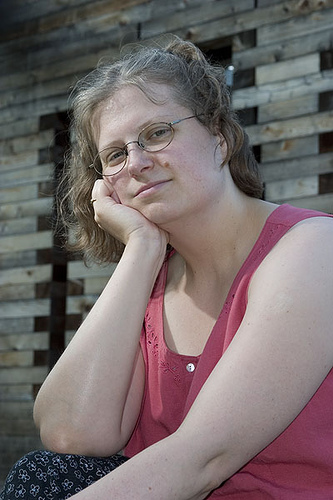By Stephanie Zvan
 On May 4, U.S. District Judge Joan Ericksen dismissed a lawsuit filed on behalf of Atheists for Human Rights as moot. The suit was filed when a marriage officiant certified by AFHR had their filing of that certificate rejected by Washington County on the basis that atheists were not among the groups authorized as marriage officiants under Minnesota law. Ericksen dismissed the suit when Washington County reversed its decision and declared it should have accepted AFHR’s certificate at the start.
On May 4, U.S. District Judge Joan Ericksen dismissed a lawsuit filed on behalf of Atheists for Human Rights as moot. The suit was filed when a marriage officiant certified by AFHR had their filing of that certificate rejected by Washington County on the basis that atheists were not among the groups authorized as marriage officiants under Minnesota law. Ericksen dismissed the suit when Washington County reversed its decision and declared it should have accepted AFHR’s certificate at the start.
Washington County’s decision is being lauded as a victory and a step forward for atheist marriage officiants. However, while this is an unequivocal victory, it is a victory for the status quo. It isn’t progress. Understanding the difference takes some background, both on the current situation for atheist marriage officiants and on what AFHR hoped to accomplish with their lawsuit. It also helps to be familiar with the judge's order.
If you’ve followed me as a writer or Minnesota Atheists as a group, you’ll know that we aim to change the law on marriage officiants. We’ve been working with state legislators to come up with acceptable language that would allow atheist and secular humanist nonprofits to certify their own trained marriage officiants and see the state recognize marriages performed by these officiants as legal.
While we’ve been going through this process, AFHR has taken a different tack. Though the correspondence we’ve had with Marie Castle on this has been somewhat contradictory, the gist of it is that AFHR issued its own officiant certificates, identifying itself as a “life stance organization”. They anticipated that rejection of these certificates would provide standing for a lawsuit that they hoped would result in a ruling overturning the law.
A number of counties instead accepted the certificates—as they should under current law. There is nothing about religion that says you must believe in a deity. Atheist religions include the Ethical Society, many sects of Buddhism, and Satanic churches. Religious humanism and Unitarian Universalism are very friendly to atheist participation, including in the ministry.
On top of that, the officiants certified by AFHR filed additional certificates) in their counties that attested that they were in compliance with state law in filing the AFHR certificates. In other words, they attested to being ministers of a qualifying religious organization. That their religious organization included “Atheists” in its name doesn’t disqualify it. After some confusion, Washington County agreed.
This is indeed a victory for AFHR. It puts AFHR in the same class as the Humanist Society, the Ethical Society, and the Universal Life Church as entities that have won recognition as religions despite opposition. That’s worth celebrating.
It is also, however, the status quo as far as atheist marriage officiants go in Minnesota. Even if AFHR’s lawsuit had gone all the way to judgement, there is no guarantee that the court would have agreed to examine the constitutionality of state law. Because AFHR’s officiants certified that they are religious ministers, they may not have been granted standing to challenge a law they insisted already covered them. Bringing another religion into the fold does nothing for groups and individuals that cannot in good conscience identify themselves as religious.
I and several other people in Minnesota interested in becoming atheist celebrants have undergone officiant training through the Center for Inquiry or the Humanist Institute. At least two of us have been officially certified by Minnesota Atheists, in MNA’s capacity as an atheist educational nonprofit. We can’t honestly sign papers that say we’re ministers. Nor can we say that MNA is a religious group. We’re not. They’re not.
Washington County’s decision was the right one. It provides another organization religious atheists can work through to obtain the ordination the state requires of marriage officiants. It doesn’t, however, provide any relief to nonreligious atheists like me who wish to be able to perform legal weddings in our nonreligious atheist community. For us, the problem is the same it’s always been.
So congratulations to AFHR on their recognition from Washington County, but let’s not think this change affects all atheists in Minnesota or even Washington County. There’s still plenty to be done on that score. MNA will keep working on it.
Stephanie Zvan

